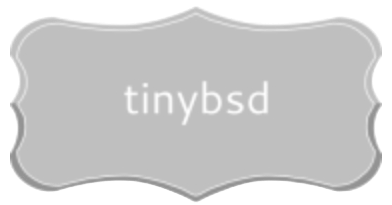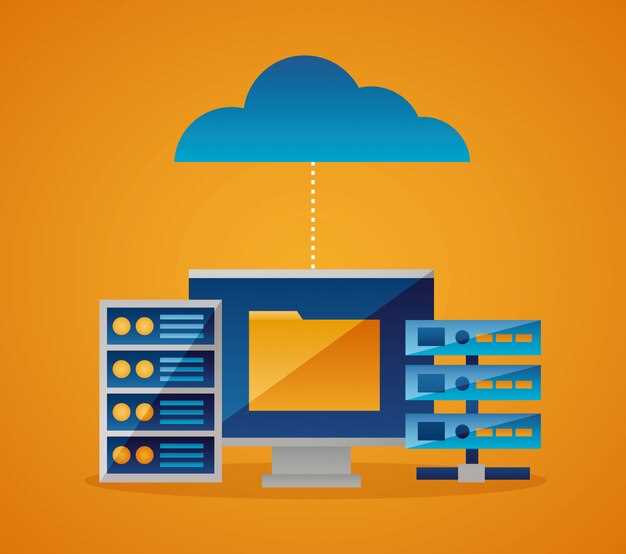Consider Debian if robust security and package management are priorities. This Linux distribution is a cornerstone of many other platforms and benefits from an extensive community and a mature package archive exceeding 59,000 packages. Its stability, while potentially requiring more manual configuration, ensures long-term reliability, making it suitable for mission-critical deployments.
Alternatively, Ubuntu LTS offers a more user-amenable route. Its 5-year support cycle lowers maintenance overhead, and its vast software repository caters to diverse workloads. The Snap packaging format facilitates easy application deployment and updates, streamlining administration. Ubuntu excels in scenarios where ease of use and broad compatibility are paramount.
Rocky Linux emerges as a binary-compatible downstream build of Red Hat Enterprise Linux (RHEL). It presents a cost-effective substitute for RHEL subscriptions, delivering enterprise-grade dependability and security updates. If migrating from RHEL or seeking a stable, long-term backing with a focus on business usage is desired, Rocky Linux warrants serious examination. It is well-suited for environments prioritizing predictable performance and compliance.
Which OS Powers My Small Business Unit’s Central Computer?
Debian is often an advantageous choice. Its stability and extensive package repository simplify administration. If familiarity with the Red Hat ecosystem exists, AlmaLinux provides a viable alternative, offering binary compatibility and long-term support. Consider Ubuntu LTS releases as another capable solution, benefiting from a substantial community and readily available support documentation. The deciding element often hinges on pre-existing skill sets within the organization.
Factors Influencing the Selection
Hardware compatibility is key. Before committing to a particular distribution, verify its compatibility with the central computer’s hardware components. Assess the IT staff’s proficiency with specific management tools. A preference for graphical interfaces versus command-line interaction may sway the decision. Review each distribution’s security track record and update frequency.
Scenario-Specific Guidelines
File sharing and print services: Samba performs admirably across distributions. Resource-intensive applications: Opt for lighter distributions with minimal overhead, such as Alpine Linux, if expertise allows. Database hosting: PostgreSQL and MariaDB operate well on Debian, AlmaLinux, and Ubuntu.
File Sharing Simplified: Choosing the Right OS
For straightforward local network file exchange, Debian, using Samba, offers granular permission control and CIFS/SMB protocol compatibility, vital Windows integration. Configure Samba shares via `smb.conf` for tailored access rights.
If remote access prevails, consider Nextcloud atop Ubuntu. Nextcloud delivers a private cloud experience, including file synchronization, versioning, and collaborative editing, accessible through web and mobile interfaces. Installation through Snap simplifies deployment.
For maximum throughput with minimal overhead on resource-constrained hardware, OpenMediaVault, built upon Debian, provides a web GUI for NAS management. Its plugins enhance functionality, adding features like BitTorrent clients and media streaming capabilities.
When prioritizing data integrity, Rockstor, leveraging BTRFS, gives advanced RAID functionalities, snapshots, and checksumming to protect against data corruption. Its web interface simplifies storage pool administration.
For large enterprises needing scalable, distributed file retrieval, GlusterFS coupled with CentOS or Rocky Linux enables creating a unified namespace across multiple machines. Configuration involves setting up trusted storage pools and volume management via CLI.
Assess user counts, bandwidth capacity, security mandates, and administration expertise when picking a system. Test performance with representative workloads prior to deployment to pinpoint bottlenecks.
Web Hosting on a Budget: Linux Distributions Explored
For economical web hosting, choose Debian due to its stability and extensive package repository. Configure Apache or Nginx as your web agent alongside PHP and MariaDB (LAMP stack) for dynamic websites. Consider using Cockpit for simplified administration through a web interface.
Lightweight Alternatives
If resource constraints are a concern, Alpine Linux offers a minimal footprint. However, package availability is more limited than in Debian. Alternatively, Ubuntu Minimal provides a balance between a small size and a wider selection of software.
Cost Optimization Strategies
Utilize containerization technologies like Docker or Podman to isolate applications and maximize resource usage. Implement caching mechanisms such as Varnish or Redis to reduce database load and improve website loading times. Regularly monitor resource consumption using tools like htop or glances to identify and address performance bottlenecks.
Securing Your Machine: Which Gratis OS Provides Optimal Safeguards?
OpenBSD is recognized as a champion in security. Its proactive approach to finding and mitigating vulnerabilities makes it a strong choice. Regular code audits and a security-first development methodology contribute to its reputation.
Key Security Features in OpenBSD
| Feature | Description |
|---|---|
| Proactive Security | OpenBSD developers actively seek out potential security issues in the base install rather than passively waiting for them to be reported. |
| Code Audits | Continuous audits of the source code help identify and eliminate vulnerabilities. |
| Cryptography | Strong cryptography is integrated directly into the base install, including support for various encryption protocols. |
| Privilege Separation | Services run with minimal privileges to limit the impact of a successful exploit. |
| W^X (Write XOR Execute) | Memory pages can be either writable or executable, but not both, preventing certain types of code injection attacks. |
Mitigation Strategies
Consider employing fail2ban on distributions like Ubuntu or Debian. This software analyzes log files and automatically blocks IP addresses exhibiting malicious signs. Also, implement intrusion detection/prevention such as Snort or Suricata to actively monitor network traffic and system activity.
DIY Home NAS: Setup Simplicity & Upkeep Overview
For straightforward home network attached storage, Debian offers unmatched customization, though initial setup requires Linux command-line proficiency. Ubuntu’s desktop variant, however, provides a gentler introduction via graphical interface, simplifying initial configuration but adding overhead unnecessary for a headless storage apparatus. OpenMediaVault, built on Debian, gives a web-based GUI ideal for novices, automating many NAS-specific tasks like RAID configuration and user management, but limiting advanced tweaking.
Initial Configuration Effort
Debian mandates manual package installation and configuration through the terminal, demanding deeper technical awareness. Ubuntu’s desktop edition pre-loads commonplace utilities and provides point-and-click solutions, but requires disabling graphical elements if aiming for reduced resource utilization. OpenMediaVault offers an intuitive web interface; setting up shared folders and access permissions is a breeze, negating command-line interaction.
Long-Term Maintenance
With Debian, expect manual intervention for most updates and issue resolution, requiring aptitude with system administration. Ubuntu provides automatic security updates and a broad knowledge base, lessening support anxiety. OpenMediaVault simplifies maintenance via its web panel, offering update notifications and plugin management, though troubleshooting complex issues may still require consulting Debian documentation.
Q&A:
I’m a small business owner with very limited IT expertise. I just need a simple file server and maybe a basic web server. Which of these free OS options would you recommend as the easiest to learn and manage for my use case?
For your situation, I would suggest looking at Ubuntu Server. While other options exist, Ubuntu has a large community providing lots of tutorials and support forums. You’ll find plenty of guidance on setting up file sharing and a basic web server. Its popularity means finding solutions to problems you encounter should be easier than with lesser-known distributions. The command line might seem daunting initially, but there are graphical user interface tools (GUIs) you can install later to manage the server, although those aren’t installed by default for server versions. Also, there are many web-based control panels (like Cockpit) you can easily install that will give you a GUI to control common server tasks. This blend of command line flexibility and potential GUI simplifies management for beginners.
My organization is very security-conscious. We’re looking for a server OS with a strong security track record and that receives frequent security updates. Which free server OS prioritizes security features out of the box?
If security is your primary concern, Debian is a solid choice. Debian is known for its rigorous testing and stability focus. It has a long history of carefully vetting software packages before including them in the distribution. The security team is active and releases security updates frequently and reliably. Additionally, Debian is used as the basis for many security-focused distributions, further demonstrating its reputation in this area. While all server OS options require proper configuration and maintenance to be secure, Debian provides a good foundation for building a secure server environment. You will want to familiarize yourself with hardening techniques specific to Debian to maximize protection, such as configuring firewalls, disabling unnecessary services, and regularly reviewing audit logs.
I’m comfortable with the command line and have experience with Linux systems administration. I plan to run resource-intensive applications on a server with multiple CPUs and a significant amount of RAM. Which free OS offers the greatest flexibility for customization and optimization for such a demanding workload?
For a demanding workload where customization is key, CentOS Stream or Fedora Server could be options to explore. These distributions offer fine-grained control over system configurations and allow tailoring the kernel and other system components to your specific hardware. They benefit from the development work done by Red Hat and have access to newer package versions. Keep in mind that CentOS Stream offers more continuous releases and might require a bit more hands-on management for stability, while Fedora Server is aimed at those who want to work with the latest technologies, but may mean dealing with more frequent upgrades and potential compatibility challenges.
Can I use one of these free server operating systems for commercial purposes? Are there any licensing restrictions I should be aware of?
Yes, you can typically use these free server operating systems for commercial purposes without paying any licensing fees. Most of them are licensed under open-source licenses like the GNU General Public License (GPL) or similar permissive licenses. These licenses grant you the freedom to use, modify, and distribute the software, even for commercial gain. However, you should always review the specific license agreement for the operating system you choose. Pay attention to requirements regarding distributing modified versions or including copyright notices. The core OS itself is generally free, but third-party software you install on the server might have different licensing terms that you need to abide by.




